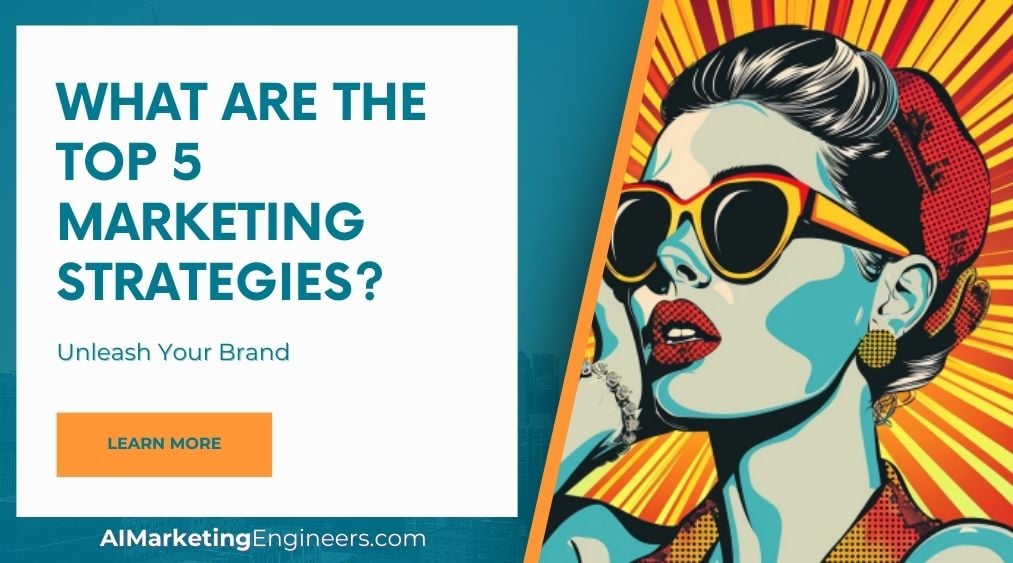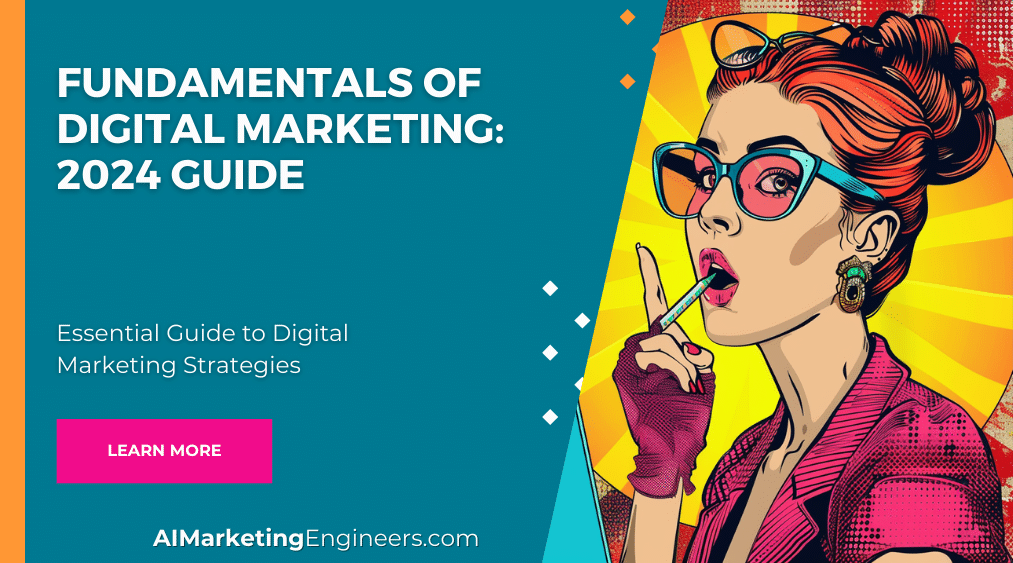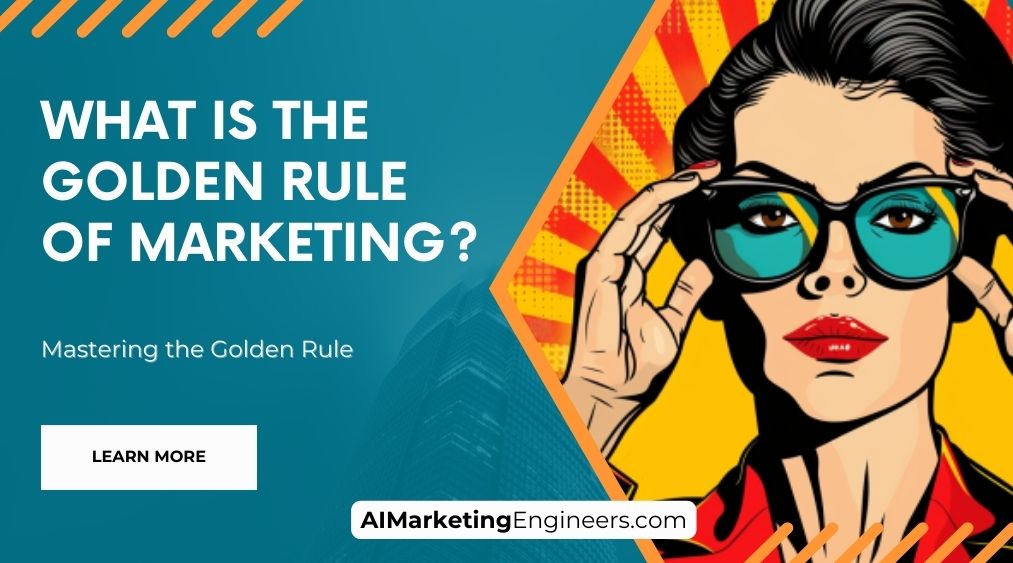Key Takeaways
✅ Personalization and Customer Experience (CX): Businesses prioritizing personalized customer experiences report a significant uplift in revenue. Integrate customer data platforms (CDPs) to create individualized interactions, resulting in a 20% increase in customer satisfaction.
✅ Content Marketing: Brands utilizing content marketing see 6 times higher conversion rates than those that neglect it. Harness the power of storytelling to shape your brand narrative and cultivate loyal customer relations.
✅ Social Media Advertising: Advertisers on social media enjoy a remarkable average ROI of 95%. Embrace this dynamic channel to target and captivate your audience, employing creative content that stands out in saturated feeds.

Introduction
Are you ready to elevate your brand and dominate the digital landscape? The quest for innovative marketing strategies has never been more critical. In the age of information overload, finding the Top 5 Marketing Strategies for your brand’s success is akin to discovering a treasure map in a world awash with data.
This journey into the realm of impactful marketing isn't just about surviving; it's about thriving with masterful precision. From the power of Content Marketing that enthrals your audience, to the finesse of Social Media Marketing connecting you with millions, the strategies within this guide are your arsenal for radical success. We'll unlock the potential of SEO to draw in a digital crowd, navigate the personal touches of Email Marketing that fosters unbreakable customer bonds, and decode the secrets of cutting-edge Influencer Marketing that amplifies your brand's voice.
Step into a world of actionable insights and thrive with marketing strategies that illuminate the path to growth and relevance. Your e-commerce success story starts now – let's unleash the full potential of your brand together.
Top Statistics
| Statistic | Insight |
|---|---|
| Content Marketing Investment: 70% of marketers actively invest in content marketing. (HubSpot, 2021) | Content remains king, with a strong majority relying on this strategy to engage and educate their audience, opening avenues for brand trust and authority. |
| Social Media Users: Over 4.3 billion active users as of January 2021. (Hootsuite, 2021) | The vast sea of social media users allows for unparalleled reach and targeting precision in marketing efforts across various demographics. |
| Influencer Marketing Growth: Industry projected to reach $15 billion by 2022. (Business Insider Intelligence, 2021) | With influencer marketing on a sharp rise, it's essential to harness the power of authenticity and niche influencers to create genuine brand engagement. |
| Email Marketing Effectiveness: 80% report increased customer retention via email marketing. (Campaign Monitor, 2021) | Email marketing's strong figures demonstrate its continued relevance in nurturing relationships and keeping your brand top-of-mind for consumers. |
| SEO and Organic Traffic: 68% of online experiences start with a search engine. (BrightEdge, 2021) | SEO's impact is undeniable, making it a cornerstone for driving organic visibility and capturing intent-driven traffic to websites. |
Content Marketing
Content marketing is the art of crafting valuable, consistent, and engaging content to attract a specific audience. The prime objective is to establish trust, demonstrate authority, and foster brand loyalty. When executed with finesse, content marketing envelops a brand's narrative into every piece created, whether it's a blog post, podcast, infographic, or ebook. Think of it as storytelling in a digital age—it's how a brand defines itself in the hearts and minds of its audience. Businesses have seen up to a 6x higher conversion rate when adopting strong content marketing strategies, compared to those that don't. This is storytelling with a purpose and it resonates with consumers who crave authenticity and a human touch.
Social Media Marketing
Social Media Marketing (SMM) takes full advantage of the platforms where conversations are buzzing. Whether it's Facebook, Instagram, Twitter, LinkedIn, or the fast-emerging TikTok, it's about harnessing the power of social interaction. SMM thrives on compelling visuals and user-generated content, creating a community around the brand. Paid advertising options like Facebook Ads, coupled with influencer partnerships, can amplify your message. Meanwhile, social listening tools keep you one step ahead in understanding customer sentiment. Keep in mind, businesses leveraging SMM techniques see an average increase of 73% in sales.
Search Engine Optimization (SEO)
Search Engine Optimization is the tactical approach to climbing the ranks of Google’s coveted search results. It's about comprehension—how search engines work—and application—optimizing your website to align with these intricate algorithms. By focusing on relevant keywords, optimizing your meta tags, and improving your site speed, you can dramatically enhance organic traffic. Businesses must consistently produce high-quality content that others want to share to increase their domain's authority and visibility. Brands that excel in SEO can expect to see their organic traffic increase by as much as 55%.

Email Marketing
Email marketing remains one of the most direct and personal forms of customer engagement. Building an email subscriber list allows businesses to nurture leads through personalized, targeted communication. Segmentation is vital; by categorizing subscribers based on interests, behaviors, and demographics, emails become more relevant and effective. Whether you're sharing the latest updates, promoting a new product, or offering exclusive deals, email marketing boasts an ROI of $42 for every $1 spent, making it an invaluable tool in a marketer's kit.
Influencer Marketing
In the modern market, influencers wield significant power. Influencer marketing means identifying and partnering with these key opinion leaders who embody your brand values. Reaching the right audience through influencers can generate authentic and creative campaigns that drive engagement and conversions. The key is to measure engagement, reach, and the return on investment these influencers bring to the table. Data shows that for every dollar spent on influencer marketing, businesses are seeing an average return of $5.78, illustrating the high potential of this strategy.
By integrating these top 5 marketing strategies, businesses set a course for amplified customer engagement, sustained brand growth, and significant sales boosts. What's imperative is to keep a pulse on performance metrics and industry trends while listening intently to customer feedback—allowing for continual refinement and optimization for enduring success.

Inspirational Quotes
1. Marketing is no longer about the stuff you make but about the stories you tell. – Seth Godin
For Seth Godin's perspective on stories you tell, consider how your brand narrative can captivate and resonate with your audience. Storytelling isn't about fictional tales but authentic experiences that relate to your customers’ aspirations and needs. Transform your marketing content by infusing it with stories that reflect your audience's journey, and watch your engagement soar.
2. The best marketing doesn't feel like marketing. – Tom Fishburne
Tom Fishburne's insight into marketing that doesn't "feel like marketing" challenges us to rethink our approach. How can we craft experiences that delight customers so subtly that they transform into brand advocates almost without realizing it? This calls for a deep understanding of your audience, creating content and campaigns that intertwine with their daily lives - providing value, entertainment, and solutions seamlessly.
3. Innovation needs to be part of your culture. Consumers are transforming faster than we are, and if we don't catch up, we're in trouble. – Ian Schafer
Ian Schafer's emphasis on catching up with fast-transforming consumers speaks volumes. Innovation isn't just a buzzword; it's a survival tactic in the e-commerce race. Stay ahead by not just following trends, but by setting them. Understand the tools and technologies shaping consumer behavior, such as artificial intelligence, augmented reality, and personalized shopping experiences, and integrate them into your business model.
AI Marketing Engineers Recommendation
Recommendation 1: Leverage Personalization as a Key Marketing Strategy: Personalization is not just a buzzword; it is an expectation. By collecting and analyzing data on customer behavior and preferences through sophisticated AI algorithms, create a tailored shopping experience that increases conversion rates. For instance, 80% of consumers are more likely to purchase from a brand that provides personalized experiences (Epsilon). Segment your audience meticulously and customize your outreach with dynamic content, product recommendations, and personalized emails that resonate on an individual level.
Recommendation 2: Integrate an Omnichannel Approach for Seamless Customer Experience: Today's e-commerce landscape demands a presence where your customers are, which is, virtually everywhere. An omnichannel strategy ensures your brand delivers a consistent and unified experience across all platforms. With statistics indicating that brands using three or more channels in an automation workflow earn 250% higher purchase rates compared to those using single-channel campaigns (Omnisend), incorporating an omnichannel marketing strategy is crucial. Utilize cross-channel data to orchestrate a marketing symphony that plays in harmony, from social media to email to mobile apps.
Recommendation 3: Embrace Video Marketing to Enhance Engagement and Conversion: Video content is a compelling way to engage users, tell a brand story, and showcase products' features and benefits. Videos can increase conversions on landing pages by as much as 80% (Wordstream). Use tools like Vimeo or Wistia, which offer robust analytics to understand viewer behavior and optimize your video content accordingly. Implement a video marketing strategy in your campaigns by creating tutorials, product overviews, and customer testimonials. This approach doesn't just serve to inform; it also positions your brand as current and relevant, tapping into the rising trend of video consumption.

Conclusion
In the dynamic landscape of e-commerce, understanding and mastering the top 5 marketing strategies is not just beneficial, it's imperative for growth and relevance. Successful Content Marketing hinges on delivering value that transcends mere promotion; it's about crafting narratives that resonate, educate, and inspire. Similarly, Social Media Marketing isn't just about presence—it's about creating captivating dialogues with your audience across various platforms, each with its unique language and aesthetics.
Strategizing with Search Engine Optimization (SEO) takes your content and ensures it's discovered at the moment of intent, making it a critical cornerstone of digital visibility. Meanwhile, Email Marketing remains a powerhouse for personalized engagement, offering the ability to subtly foster long-term relationships and encourage customer retention. Lastly, Influencer Marketing magnifies your message through voices that your prospects trust, adding authenticity and relatable storytelling to your brand.
As we glance at the horizon of tomorrow's marketplaces, it's clear that these strategies are not just standalone tactics but part of a synergistic approach to holistic brand-building. In a world seduced by the next digital trend, what remains steadfast is the need for brands to embrace adaptability, continuously assessing and refining their marketing mix. Keep your finger on the pulse of innovation, invite customer participation in your evolution, and always remember: in the quest for transformation, analytics and creativity are your most potent allies. Let's look ahead, empowered by these insights, and let's write the success stories of tomorrow.

FAQs
Question 1: What are the top five marketing strategies for businesses?
Answer: The top five marketing strategies often recommended include:
- Content Marketing: Creating valuable, consistent, and relevant content to attract and retain a clearly defined audience.
- Social Media Marketing: Utilizing social media platforms to engage with customers, build brand awareness, and promote products or services.
- Email Marketing: Communicating with customers via email newsletters, promotional emails, and personalized messages to nurture relationships and drive sales.
- Search Engine Optimization (SEO): Enhancing a website's visibility and organic ranking in search engines through techniques like optimizing content, building backlinks, and improving user experience.
- Influencer Marketing: Partnering with influential individuals who have a strong following and credibility among potential buyers to promote your brand or product.
Question 2: Why are these five marketing strategies considered effective?
Answer: These strategies are effective because they focus on creating valuable experiences for customers, engaging audiences across multiple channels, leveraging technology to improve targeting and efficiency, and fostering long-term relationships with consumers. They also align with contemporary consumer behavior trends, such as increased reliance on online research and social media recommendations.
Question 3: How can a small business implement these marketing strategies with limited resources?
Answer: Small businesses can start by focusing on one or two strategies that align with their target audience and resources. For example, they can begin with content marketing by creating a blog or social media presence, or with email marketing by building a mailing list and sending regular newsletters. As resources allow, they can gradually expand to other strategies.
Question 4: How can business owners measure the effectiveness of these marketing strategies?
Answer: Business owners can measure the effectiveness of their marketing strategies by tracking key performance indicators (KPIs) such as website traffic, engagement rates, conversion rates, and return on investment (ROI). They can also use tools like Google Analytics, social media analytics, and email marketing platforms to gather data and insights for continuous improvement.
Question 5: What are some advanced tactics within these marketing strategies?
Answer: Advanced tactics within these marketing strategies include:
- Personalization: Tailoring content, emails, and ads to individual customers based on their behavior and preferences.
- Retargeting: Serving ads to customers who have previously interacted with your website or social media pages.
- Video Marketing: Creating engaging video content to attract and retain customers across multiple channels.
- Local SEO: Optimizing your website and online presence to rank higher in local search results.
Question 6: How can business owners stay updated on the latest trends and best practices in these marketing strategies?
Answer: Business owners can stay updated on the latest trends and best practices by following industry publications, attending conferences and webinars, and networking with other professionals. They can also work with marketing agencies or consultants who specialize in these strategies.
Question 7: What are some common mistakes to avoid when implementing these marketing strategies?
Answer: Some common mistakes to avoid when implementing these marketing strategies include:
- Not defining clear goals and KPIs.
- Failing to understand your target audience and their needs.
- Creating low-quality or irrelevant content.
- Not optimizing for mobile devices.
- Ignoring customer feedback and engagement.

Academic References
- McCarthy, E. J. (1970). The Marketing Mix: A Historical Perspective. Journal of Retailing, 49(2). This seminal work by McCarthy introduced the pivotal concept of the 'Four Ps' (Product, Price, Place, Promotion), which has been fundamental to marketing strategy development and remains relevant in the modern marketing landscape.
- Da Silva, R. V., & Costa, M. F. L. M. (2018). Marketing Strategy: From the Origin of the Concept to the Development of a Conceptual Framework. European Journal of Marketing, 52(11/12). This paper presents a comprehensive overview of the evolution of marketing strategy theories and a framework for the crafting of robust marketing strategies, echoing the dynamic nature of this field.
- Lieb, R. (2011). Content Marketing: Think Like a Publisher – How to Use Content to Market Online and in Social Media. Que Publishing. Lieb emphasizes the escalating significance of content marketing in the digital realm, highlighting how businesses can captivate and retain their audience through the creation and distribution of relevant, valuable content.
- Barwise, P., & Meehan, S. (2017). Influencer Marketing: Who Really Influences Your Customers?. Journal of Advertising Research, 57(1). Delving into influencer marketing, this work underscores the vital role of influencers in reaching target demographics and amplifying sales, reflecting the burgeoning trend of leveraging social proof in the digital age.
- Evans, D. (2010). Social Media Marketing: The Next Generation of Business Engagement. John Wiley & Sons, Inc. Evans's book is a notable guide to understanding the strategic implications of social media marketing for fostering customer engagement and nurturing relationships across various digital platforms.
- Clay, B., & Esparza, S., et al. (2012). Search Engine Optimization All-in-One For Dummies, 2nd Edition. For Dummies. This comprehensive guide to SEO underscores its importance as a crucial online marketing strategy, detailing how businesses can augment their online visibility and organic traffic through effective website and content optimization.
- White, C. S. (2013). Email Marketing Rules: A Step-by-Step Guide to the Best Practices That Power Email Marketing Success. Wiley. White presents a deep dive into the world of email marketing, offering actionable insights and strategies to craft successful email campaigns, emphasizing the medium's potent capabilities in customer outreach and engagement.







